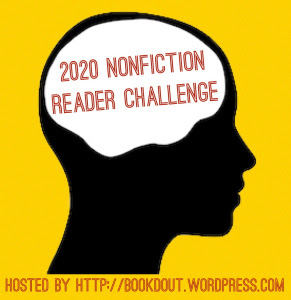Why Bri Lee’s skull is a sign that women have had enough of abuse

Eggshell Skull, published in 2018 by Allen & Unwin, is a memoir that peels back layers of personal and societal abuse, as seen by the author in her first year as a Judge’s Associate, and throughout her own foray into the legal system as a complainant.
If you or someone close to you has had contact with the police or courts in Australia, either as defendant or complainant, you will relate to much of Bri’s story. Many years ago, I survived a bitter drawn out dispute in the Family Court. Loud bells of recognition jangled in my head as I read Bri’s descriptions of the powerlessness, despair and frustration she experienced during her own ‘journey’ through complex legal processes. She had the advantage of familiarity with at least some of the jargon and steps involved in bringing a matter to court, having completed a law degree and worked as a Judge’s Associate for a year—insight which most of don’t have access to.
Ironically, it was precisely that experience so early in her working life that led her to bring forward her own complaint. After travelling with her Judge on court circuits to Queensland country towns and regional centres, and hearing case after case of rape, sexual assault, and child abuse—not all of which were resolved in the complainants’ favour—something tipped inside her. She began to recognise that her conflicted feelings about her chosen profession, her disturbing memories of an episode of childhood sexual abuse by a teenage friend of her brother, her negative self-image and episodes of self-harm, were all connected.
‘Since puberty I had accepted…that I wasn’t worth anything; that the ugly thing was ever-present inside me. That it was the dark truth, a rotten core, and that the smiling daytime Bri was the façade. It wasn’t until years later that I learned that so many of the feelings I struggled with are perfectly normal for abuse and trauma survivors.’
p. 131
She decided to do something about it.
So began her transformation from wearing the robes of a Judge’s Associate, to entering a police station and court house wearing the everyday clothes of a complainant. She experienced the labyrinthine, slow passage of legal matters from complaint to trial and sentencing—and the many points along the way at which the matter can be deemed not serious enough or unlikely to be brought to trial and so dropped from the lists. The cliché ‘roller-coaster ride’ barely suggests the emotional highs and lows someone experiences at these times. Small vignettes, like the painful process of making her initial and later statements to a police officer whose two-fingered typing meant the ordeal was dragged out much longer than it needed to be, increasing her discomfort, are details that brought me right into her experience. I was there with Bri, wanting to shout hurry up! at the slow typing officer. The way the defendant delayed matters endlessly by not showing up or having tasks completed on time, became another form of abuse.
…I’d felt totally powerless…Samuel in control again. He was taking up my time, my energy, my life. Calls about the case invaded my beautiful home. Reminders of the next mention invaded my mind when I slept. So long as the legal process continued I would be the complainant—and every two, three or four weeks, I would be reminded of that. Reminded that I was just the girl, reminded of being pushed on my back, belly-up, frozen.
p 284
On top of all that is the added layer of social attitudes towards women who make allegations of rape or other sexual assaults or abuse. How can they be believed? Does their use of the contraceptive pill while not in a steady relationship imply they are sexually promiscuous? Are their memories of childhood abuse accurate or are they imagining it? Unlike other crimes, there is often no ‘hard’ evidence of crimes of a sexual nature, especially historical crimes. So there are plenty of holes into which these matters can, and often do, fall.
The title, Eggshell Skull, refers to a common legal rule that a defendant must ‘take his victims as they find them.’ (p.v) If, for example, a victim of a punch dies because of an existing medical condition, the person who threw the punch is still responsible for their death. When her matter is resolved, Bri Lee finds herself reflecting that the rule works both ways. If a perpetrator of abuse decides to fight the allegations in court, and finds the complainant more determined, braver, better supported by family and friends than he’d expected, well…that’s his problem, not hers.
This memoir is an interesting read in the context of the Me Too movement, in which women all over the world began to call out male sexual abuse for what it is and took action to stop it. Bri Lee’s eggshell skull is perhaps one part of that worldwide picture.

Related
You May Also Like

One Comment
shelleyrae @ Book'd Out
I found this to be a very thought-provoking book, it’s tragic that her experience is not unique. Thanks for sharing your review